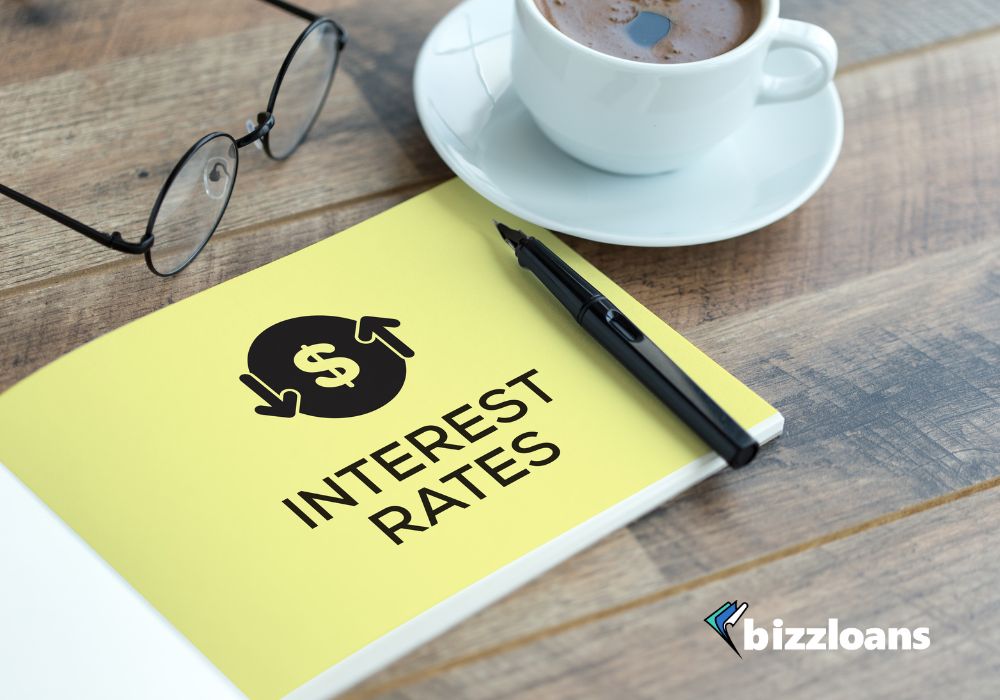Interest rates play a crucial role when it comes to borrowing funds for business purposes. Understanding business loan interest rates is essential for business owners looking to secure financing.
Several factors determine these rates, including credit score, business financials, loan amount, term, and market conditions. Currently, business loan interest rates vary based on the national average and the type of loan. Economic factors, loan purpose, and industry risk can affect these rates.
To obtain the best interest rates, businesses should focus on improving their credit scores, strengthening their financials, exploring different loan options, and negotiating with lenders.
Last but not least, monitoring and managing interest rates is crucial for businesses to ensure their loan payments remain manageable.
Key takeaway:
- Understanding Business Loan Interest Rates: It is crucial to understand the factors that determine business loan interest rates, such as credit score, business financials, loan amount, and market conditions.
- Current Business Loan Interest Rates: The national average interest rates and a comparison of different types of business loans provide insights into the current interest rate landscape.
- How to Get the Best Business Loan Interest Rates: Improving credit score, strengthening business financials, shopping around for loan options, and negotiating with lenders are key strategies to obtain favorable business loan interest rates.
Understanding Business Loan Interest Rates
Understanding business loan interest rates is crucial for any entrepreneur or business owner. It determines the cost of borrowing money and directly affects the profitability of the business. When considering business loans, it is important to remember that interest rates are not fixed and can vary depending on various factors such as creditworthiness, loan tenure, and the type of loan.
To better understand business loan interest rates, it is advisable to research and compare rates from different lenders. Look for lenders that offer competitive rates and favorable terms. It is also important to have a clear understanding of the terms and conditions associated with the loan, including any additional fees or charges.
Additionally, maintaining a good credit score and a strong financial profile can help in securing better interest rates. Lenders often offer lower rates to businesses with a lower credit risk. Therefore, it is essential to cultivate a positive financial track record and strengthen the business’s financial standing.
What Determines Business Loan Interest Rates?

Interest rates play a crucial role in the world of business loans. So, what exactly determines these rates? In this section, we’ll explore the key factors that influence business loan interest rates. From credit scores and financial performance to market conditions, we’ll uncover the intricate details that lenders consider before setting the rates. By understanding these determinants, you’ll gain valuable insights into the fascinating world of business loan interest rates. Let’s dive in!
Credit Score and Credit History
When it comes to business loan interest rates, your credit score and credit history play a crucial role. Here are some key points to consider:
- Credit score: Lenders assess your creditworthiness based on your credit score. A higher credit score indicates a lower risk for the lender, resulting in more favorable loan terms.
- Credit history: Lenders also consider your credit history, including your repayment track record, any late payments or defaults, and the overall length of your credit history.
- Impact on interest rates: A good credit score and a clean credit history can help you secure lower interest rates on your business loan. On the other hand, a poor credit score or negative credit history may result in higher interest rates.
- Access to loans: Your credit score and credit history can also impact your eligibility for certain types of loans. For example, traditional banks may have stricter requirements, while alternative lenders may offer more flexible options for borrowers with lower credit scores.
- Improving your credit: If your credit score is less than optimal, taking steps to improve it, such as making timely payments, reducing debt, and correcting any errors on your credit report, can help you qualify for better loan terms in the future.
Remember, maintaining a good credit score and a positive credit history is essential for obtaining affordable business loan interest rates.
Business Financials and Performance
The table below demonstrates the significance of business financials and performance in determining loan interest rates:
| Factor | Description |
| 1. Credit Score | A higher credit score indicates better financial management and reduces the risk for lenders. This can lead to lower interest rates. |
| 2. Revenue and Profitability | A strong financial track record, with consistent revenue and profitability, demonstrates stability and the ability to repay the loan. Lenders may offer lower rates to financially healthy businesses. |
| 3. Debt-to-Income Ratio | A lower debt-to-income ratio shows that the business has manageable debt levels and a healthy cash flow. Lenders consider this when determining interest rates. |
| 4. Industry Performance | The performance of the industry in which the business operates can impact interest rates. If the industry is experiencing growth and stability, lenders may offer more favorable rates. |
| 5. Business Age and Experience | Established businesses with a proven track record are seen as less risky, leading to potentially lower interest rates. Newer businesses or those with limited experience may face higher rates. |
It is crucial for businesses to maintain strong financials and performance to increase the likelihood of securing loans at favorable interest rates. By managing credit scores, demonstrating financial stability, maintaining a healthy debt-to-income ratio, and staying informed about industry performance, businesses can improve their chances of obtaining loans with lower interest rates.
Loan Amount and Term
The sub-topic “Loan Amount and Term” can be presented in a table format to provide clear and concise information:
| Loan Amount | Loan Term |
|---|---|
| $10,000 | 1 year |
| $25,000 | 2 years |
| $50,000 | 3 years |
| $100,000 | 5 years |
| $200,000 | 10 years |
When it comes to determining the loan amount and term, it is important to consider your specific business needs and financial capabilities. Assessing how much funding you require for your business goals is crucial in order to ensure that you have enough capital to meet your objectives without taking on excessive debt. Additionally, carefully evaluating the loan term is necessary as it impacts the length of time you will have to repay the borrowed funds.
It is essential to keep in mind that the loan amount and term will vary depending on multiple factors such as your creditworthiness, business revenue, and collateral, if any. By thoroughly analyzing and understanding your business financials, you can determine the ideal loan amount and term that aligns with your goals and financial capabilities.
Remember to consult with lenders and explore various loan options to find the best fit for your business. Negotiating the loan amount and term with lenders may also be possible based on your business’s needs and financial situation.
Ultimately, carefully considering the loan amount and term will ensure that you secure the right financing for your business and set yourself up for success.

Market Conditions
Market conditions play a substantial role in determining business loan interest rates. These conditions are heavily influenced by various economic factors and can fluctuate over time. Below is a table that illustrates the impact of different market conditions on interest rates:
| Market Conditions | Interest Rates |
| Inflation | During periods of high inflation, interest rates tend to be higher as lenders try to safeguard their returns from the eroding value of money. |
| Economic Growth | In times of robust economic growth, interest rates are typically higher due to increased demand for credit and borrowing. |
| Central Bank Policies | Decisions made by central banks regarding the supply of money and interest rate targets can directly impact market interest rates. |
| Financial Market Volatility | If financial markets experience high volatility, lenders may raise interest rates to compensate for potential risks. |
| Competition | Competition among lenders can also influence interest rates. When competition is high, lenders may lower rates to attract borrowers. |
It is crucial for businesses to stay informed about the current market conditions as they can have a significant impact on the interest rates offered by lenders. By understanding the market conditions, businesses can make more informed decisions and potentially secure more favorable loan terms.
Current Business Loan Interest Rates
Looking to stay informed about current business loan interest rates? Well, you’re in the right place! In this section, we’ll dive into the nitty-gritty of this financial landscape. First, we’ll uncover the national average interest rates, giving you an overview of the industry. Then, we’ll delve into a comparison of different types of business loans, giving you the insights you need to make informed financial decisions. Get ready to explore the world of business loan interest rates!
National Average Interest Rates
The national average interest rates for business loans can vary depending on several factors. It is important to understand these rates in order to make informed financial decisions for your business. Below is a table that highlights the national average interest rates for different types of business loans:
| Loan Type | Average Interest Rate |
| Small Business Administration (SBA) Loans | Between 5% and 8% |
| Traditional Bank Loans | Around 5% to 10% |
| Equipment Financing | Between 4% and 30% |
| Invoice Financing | From 13% to 60% |
| Business Line of Credit | Between 7% and 25% |
Pro-tip: When comparing national average interest rates, it is essential to consider your specific business needs and financial situation. Factors such as credit score, loan term, and loan purpose can greatly impact the interest rate you may be offered. Always explore different loan options, shop around, and negotiate with lenders to secure the best interest rates for your business.
Comparison of Different Types of Business Loans
When comparing different types of business loans, it is important to consider the interest rate, loan amount, loan term, and credit score requirement.
Small Business Administration (SBA) loans typically have an interest rate range of 5% to 10% and can provide loan amounts of up to $5 million with repayment terms of up to 25 years. A minimum credit score of 680 is typically required for SBA loans.

Term loans, on the other hand, have a wider interest rate range of 4% to 30%. These loans offer loan amounts of up to $500,000 with repayment terms ranging from 1 to 10 years. The minimum credit score requirement for term loans is usually 600.
For businesses looking to finance equipment purchases, equipment financing loans are available. These loans have interest rates ranging from 5% to 30% and can provide financing up to the full value of the equipment. Repayment terms typically range from 1 to 5 years, and a minimum credit score of 550 is required.
Lines of credit are another option for businesses, with interest rates ranging from 7% to 25%. These loans provide flexible financing, allowing borrowers to access funds as needed up to a predetermined credit limit. Loan amounts can go up to $250,000 with repayment terms of up to 5 years. A minimum credit score of 600 is usually required.
Invoice financing offers a unique way for businesses to access funds by using unpaid invoices as collateral. The interest rates for invoice financing typically range from 2% to 5% of the invoice value. Loan amounts can be up to 85% of the invoice value, with repayment terms of 30 to 90 days. There is no specific credit score requirement for invoice financing.
By considering these factors, businesses can make an informed decision when comparing different types of business loans based on their specific needs and circumstances.
Factors That Affect Business Loan Interest Rates
When it comes to business loan interest rates, several factors come into play. In this section, we’ll take a closer look at the key drivers that can influence these rates. From economic conditions to the purpose of the loan and industry-specific risks, each sub-section will shed light on a different aspect contributing to the broader interest rate landscape. So, whether you’re an entrepreneur or a small business owner, understanding these factors can help you navigate the intricacies of business loan rates with confidence and make informed borrowing decisions.
Economic Factors
Economic factors play an essential role in determining business loan interest rates. These factors can significantly impact the overall interest rate that lenders offer to borrowers.
| 1. Inflation rates: High inflation rates can lead to higher interest rates as lenders seek to protect their returns from erosion caused by inflation. |
| 2. Government policies: Changes in government policies, such as monetary policies or regulations, can affect interest rates. For example, if the government tightens monetary policy to control inflation, interest rates may increase. |
| 3. Economic growth: A strong economy with high levels of economic growth can lead to lower interest rates as lenders compete for borrowers. |
| 4. Market conditions: Market conditions, such as supply and demand dynamics, can impact interest rates. If there is a high demand for loans, interest rates may increase. |
| 5. Credit market conditions: The overall state of the credit market, including factors like liquidity and perceived risk, can influence interest rates. |
Considering these economic factors can help borrowers understand the potential impact on the interest rates they may be offered. It is important for businesses to monitor economic conditions and stay updated on market trends to make informed decisions when it comes to securing business loans.

Loan Purpose
The purpose of a loan is a significant factor that affects business loan interest rates. Lenders take into consideration the reason why you are seeking a loan as it affects the level of risk associated with the loan. Some common loan purposes include:
1. Starting a new business: If you are starting a new business, lenders may perceive it as a higher risk since there is no established track record of financial performance. Therefore, interest rates may be higher.
2. Expanding or growing a business: Lenders may view this as a less risky loan purpose since you already have an established business. Consequently, interest rates may be lower for loans intended for business growth and expansion.
3. Purchasing assets or equipment: Loans used for purchasing assets or equipment are typically secured by the assets themselves. This reduces the risk for lenders and may lead to lower interest rates.
4. Working capital needs: Loans used to cover day-to-day expenses, manage cash flow, or bridge temporary gaps in revenue may have varying interest rates, depending on the lender’s assessment of the business’s financial stability.
It’s important to note that loan purpose is just one of the factors that lenders consider when determining interest rates. Your credit score, financials, loan amount, market conditions, and industry risk also influence the rates you may qualify for.
Historically, loan purpose has played a crucial role in interest rate determination. Lenders analyze the specific purpose of the loan to evaluate risk and assign interest rates accordingly. By understanding the impact of loan purpose on interest rates, businesses can make informed decisions when seeking funding.
Remember to consider your business’s specific needs and goals when determining the loan purpose and understand how it may affect the interest rates offered by lenders.
Industry Risk
The industry risk is a significant factor that affects business loan interest rates. Lenders consider the level of risk associated with a particular industry when determining the interest rate for a business loan. Industries with higher risks may have higher interest rates compared to industries with lower risks.
The industry risk is determined by various factors, including market volatility, competition, regulatory environment, and economic trends. It is important for lenders to assess the stability and potential growth of the industry in which a business operates.

When evaluating industry risk, lenders consider the historical performance of businesses in the same industry, as well as the potential challenges and opportunities that may arise. They also examine industry-specific factors such as technological advancements, changes in consumer behavior, and shifts in market demand.
To mitigate industry risk, businesses can focus on diversifying their revenue streams, implementing effective risk management strategies, and staying updated with industry trends and regulations. By demonstrating a strong understanding of their industry and presenting a comprehensive business plan, businesses can potentially negotiate better loan terms and lower interest rates.
Ultimately, understanding the industry risk and effectively managing it is crucial for businesses seeking favorable business loan interest rates.
How to Get the Best Business Loan Interest Rates
Want to know how to secure the best business loan interest rates? Look no further. In this section, we’ll uncover some game-changing strategies that can help you achieve just that. From improving your credit score to strengthening your business financials, we’ll explore various ways to enhance your loan eligibility. Additionally, we’ll talk about the importance of shopping around for different loan options and how negotiating with lenders can make a significant difference. Don’t miss out on these valuable tips to secure favorable interest rates for your business loan.
Improve Credit Score
To enhance your credit score and enhance your chances of securing the best business loan interest rates, follow these steps:
For more information on business loan rates right now, check out the Interest Rates Spotlight: What are Business Loan Rates Right Now?
- Ensure timely and complete payment of your bills. Late or missed payments can have a negative impact on your credit score.
- Lower your credit card balances. Aim to maintain a credit utilization ratio below 30%.
- Avoid unnecessary opening of new credit accounts. Excessive credit inquiries can adversely affect your score.
- Maintain a mix of different credit types. Having a combination of credit cards, loans, and a mortgage showcases responsible credit management.
- Regularly check your credit report for any inaccuracies. Dispute and correct any errors to ensure an accurate credit score.
- If necessary, seek assistance from a credit repair company or credit counseling service. They can provide guidance and support in improving your credit score.
- Keep your long-standing accounts open. A lengthy credit history can have a positive impact on your score.
By following these steps, you can enhance your credit score and position yourself to qualify for the best business loan interest rates available.

Strengthen Business Financials
Strengthening business financials is of utmost importance when aiming to obtain favorable business loan interest rates. Here are some effective strategies to achieve this:
- Improve cash flow: Prioritize implementing measures to manage and optimize cash flow, such as establishing efficient invoicing processes, negotiating favorable payment terms with suppliers, or offering early payment discounts.
- Reduce debt: Focus on paying off existing debt and maintaining a low credit utilization ratio. Lenders favor businesses with minimal debt levels as it signifies financial stability and strong financial obligation management.
- Increase profitability: Concentrate on enhancing profitability by analyzing pricing strategies, decreasing expenses, and increasing sales or revenue. This not only makes your business more appealing to lenders but also strengthens your ability to repay loans.
- Build a strong credit history: Make timely payments of bills and financial obligations, including loans and credit cards, to establish a positive credit history. Consistently displaying responsible financial behavior significantly impacts your credit score, leading to better loan terms.
- Maintain accurate financial records: Keep your financial records organized and up to date. Precise financial statements like balance sheets, profit and loss statements, and cash flow statements provide lenders with a comprehensive overview of your business’s financial well-being.
By implementing these strategies to strengthen your business’s financials, you will greatly enhance your chances of securing the best business loan interest rates.
Shop Around for Loan Options
When looking for a business loan, it is important to shop around for different loan options to find the best fit for your needs. Here are some steps to consider:
- Research different lenders: Take the time to explore different lenders, including traditional banks, online lenders, and credit unions. Each may have different interest rates, terms, and eligibility criteria.
- Compare interest rates: Once you have identified potential lenders, shop around for loan options and compare their interest rates to find the most competitive option. Remember to consider whether the rate is fixed or variable and the potential impact on your repayment plan.
- Review loan terms: Look at the terms and conditions of the loans offered by different lenders, including repayment periods and any fees associated with the loan. This will help you assess the overall cost of the loan.
- Check eligibility requirements: Make sure you meet the eligibility requirements of each lender before applying. This will help you avoid unnecessary credit inquiries and save time in the application process.
- Read customer reviews: Look for reviews or testimonials from other borrowers to get a sense of the lender’s reputation and customer service. This can provide valuable insights into the lender’s reliability and responsiveness.
Pro-tip: Remember that shopping around for loan options allows you to compare different offers and find the best deal for your business. Don’t rush into a decision and take the time to evaluate all your options before committing to a loan.
Negotiate with Lenders
When it comes to securing the best business loan interest rates, it is crucial to negotiate with lenders effectively. Follow these steps to increase your chances of securing a favorable rate:
- Research and gather information on various lenders and their interest rate offerings.
- Prepare a detailed business plan that emphasizes your business’s financial health, projected growth, and repayment capacity.
- Approach lenders confidently and clearly articulate your borrowing needs and expectations.
- Showcase your strong credit history and impressive credit score to demonstrate your creditworthiness.
- Compare and negotiate loan terms, including interest rates, repayment periods, and any associated fees.
- Highlight your positive relationships with other lenders or offers you have received to leverage better terms.
- Emphasize your business’s strengths, such as a solid track record, steady cash flow, or valuable assets.
- Be open to negotiating other aspects of the loan, such as collateral requirements or prepayment penalties, to achieve a better interest rate.
- Consider seeking assistance from a loan broker or financial advisor, who can negotiate on your behalf and provide valuable insights.
- Review and thoroughly understand the loan agreement before finalizing any negotiations.
Negotiating effectively with lenders can help you secure a business loan with more favorable interest rates, saving your business money and increasing your chances of success in the long run.
The Importance of Monitoring and Managing Interest Rates

Monitoring and managing interest rates is crucial for businesses. Interest rates can have a significant impact on the cost of borrowing, affecting profitability and cash flow. By monitoring interest rates, businesses can make informed decisions about when to take on debt or refinance existing loans.
One important reason to monitor interest rates is to take advantage of favorable conditions. When interest rates are low, businesses can save money by securing loans at lower rates. This can lead to reduced interest expenses and increased savings, ultimately boosting the company’s financial health.
Additionally, businesses should regularly review their existing loans to ensure they are still competitive in the current interest rate environment. If interest rates have dropped since the loan was initially taken, refinancing may be a smart move to lower interest costs and improve cash flow.
On the other hand, monitoring interest rates can also help businesses prepare for potential rate hikes. Rising interest rates can increase borrowing costs, making it more expensive for businesses to obtain new financing. By staying informed, businesses can plan ahead, adjust their budgets, and explore alternative financing options to minimize the impact.
To effectively manage interest rates, businesses can work with financial advisors or utilize online tools that provide real-time updates on rate changes. It’s crucial to stay proactive, monitor market trends, and take appropriate actions to optimize borrowing costs and financial stability.
Interest Rates Spotlight: What are Business Loan Rates Right Now?
- ✅ 50% of small businesses have delayed plans to grow due to rising interest rates.
- ✅ 53% of small businesses that had used a variable rate loan have converted it into a fixed rate loan.
- ✅ 40% of small businesses have changed billing practices to front-load costs, and 39% have increased their line of credit.
- ✅ 49% of small businesses have taken out a loan in the past year to cover higher costs due to inflation.
- ✅ 76% of small businesses say rising interest rates are limiting their ability to raise capital or finance their business.
Frequently Asked Questions
What are the current business loan rates for commercial real estate?
The current business loan interest rates for commercial real estate can vary depending on factors such as loan type, credit profile, and lender. Traditional bank loans may offer rates as low as 6%, while online lenders could provide rates of 60.9% or higher. It is essential to shop around and compare rates to make an informed decision. Additionally, consider the additional costs like origination and servicing fees when comparing rates.
How do fixed and variable interest rates affect business loans?
Lenders typically offer the choice between fixed or variable interest rates for different loan products. Fixed rates, best for long-term loans like commercial real estate or equipment loans, allow for budget planning without surprises. On the other hand, short-term loans or business lines of credit may benefit from variable interest rates, allowing borrowers to take advantage of rate drops without long-term commitments.
What is a good interest rate for a small business loan?
A good interest rate for a small business loan typically falls between 6% and 17%. This rate can vary depending on factors such as loan type, credit score, and lender. It is important to consider your business qualifications and compare offers from multiple lenders to find the best deal. However, bad credit business loans may have rates of 35% or higher due to increased risk for lenders.
How does the Small Business Administration (SBA) influence business loan interest rates?
The Small Business Administration (SBA) sets the maximum fixed and variable rates for SBA loans, which lenders must follow. These rates are tied to the prime rate, the LIBOR rate, or an optional peg rate. For example, if you borrow $20,000 at a variable rate with a five-year term, the maximum interest rate would be the current base rate (8.25%) plus 4.25%, totaling 12.5%. It’s essential to familiarize yourself with the SBA’s guidelines to understand the potential interest rates for SBA loans.
How are business loan interest rates affecting small businesses?
Rising interest rates have led to various consequences for small businesses. According to surveys, 50% of small businesses have delayed plans to grow due to rising interest rates. Additionally, 76% of small businesses say rising interest rates are limiting their ability to raise capital or finance their business. Furthermore, tighter credit from banks has made it harder for 73% of small businesses to borrow money, and 74% express concerns about paying back current loans due to increasing interest rates.
What are the financing options available for small businesses?
Small businesses have a diverse range of financing options to choose from. While some rely on personal savings and credit cards as their primary sources of funding, others seek funding from local banks or credit unions. Additionally, smaller small businesses may turn to online lenders, friends and family, national banks, or even the U.S. Small Business Administration for financing. The choice of financing sources may vary based on factors such as business size, ownership, and generation.


